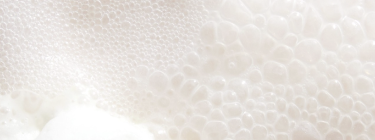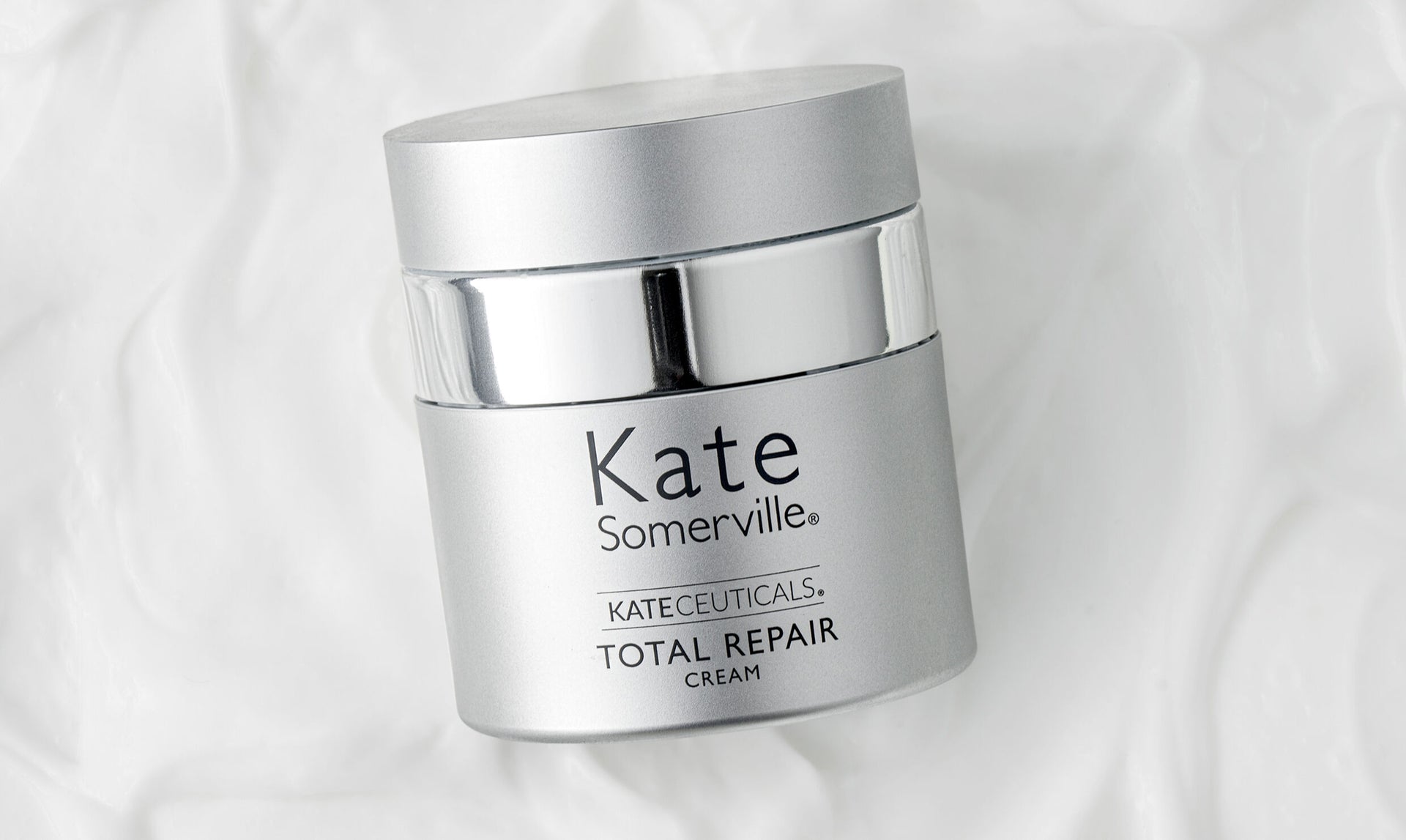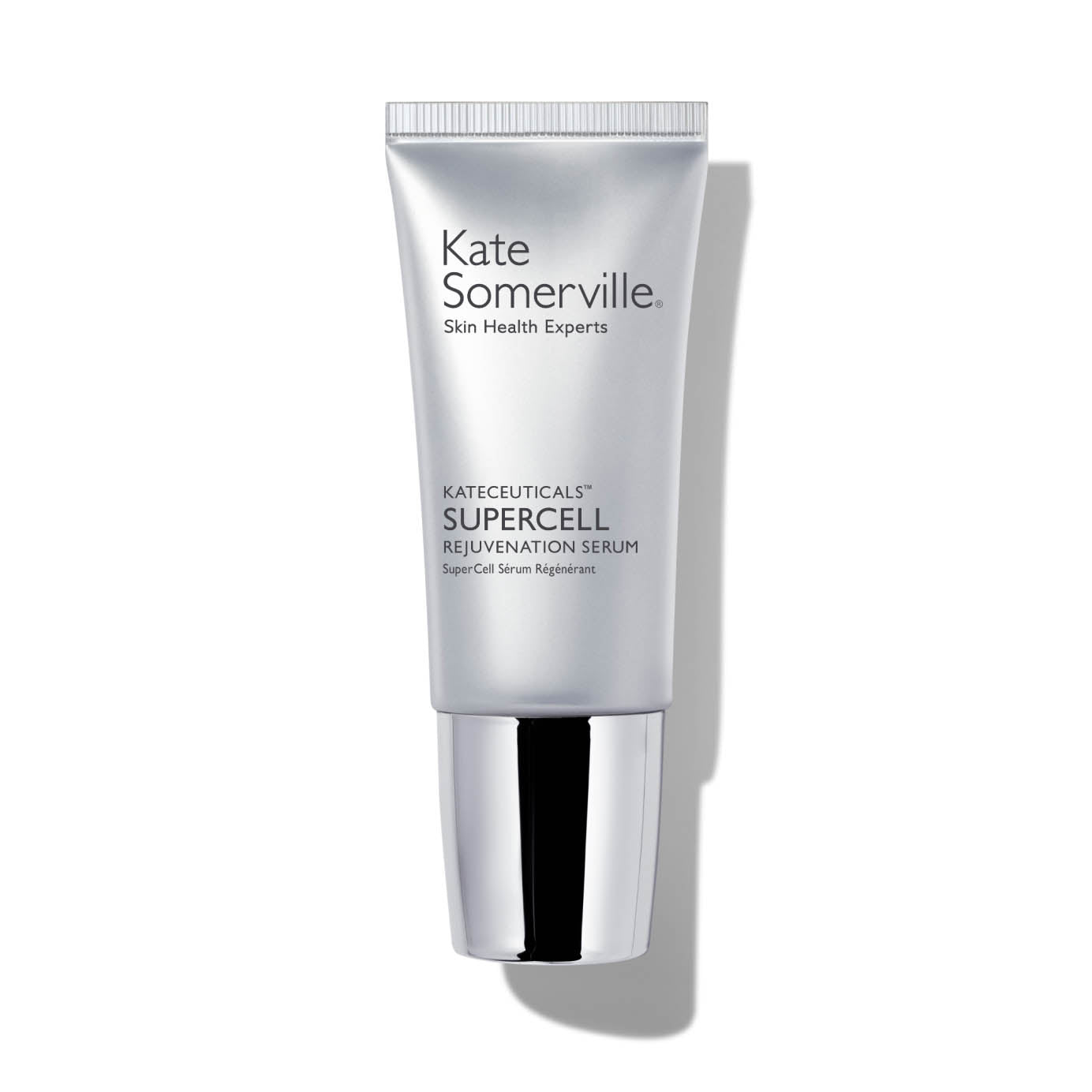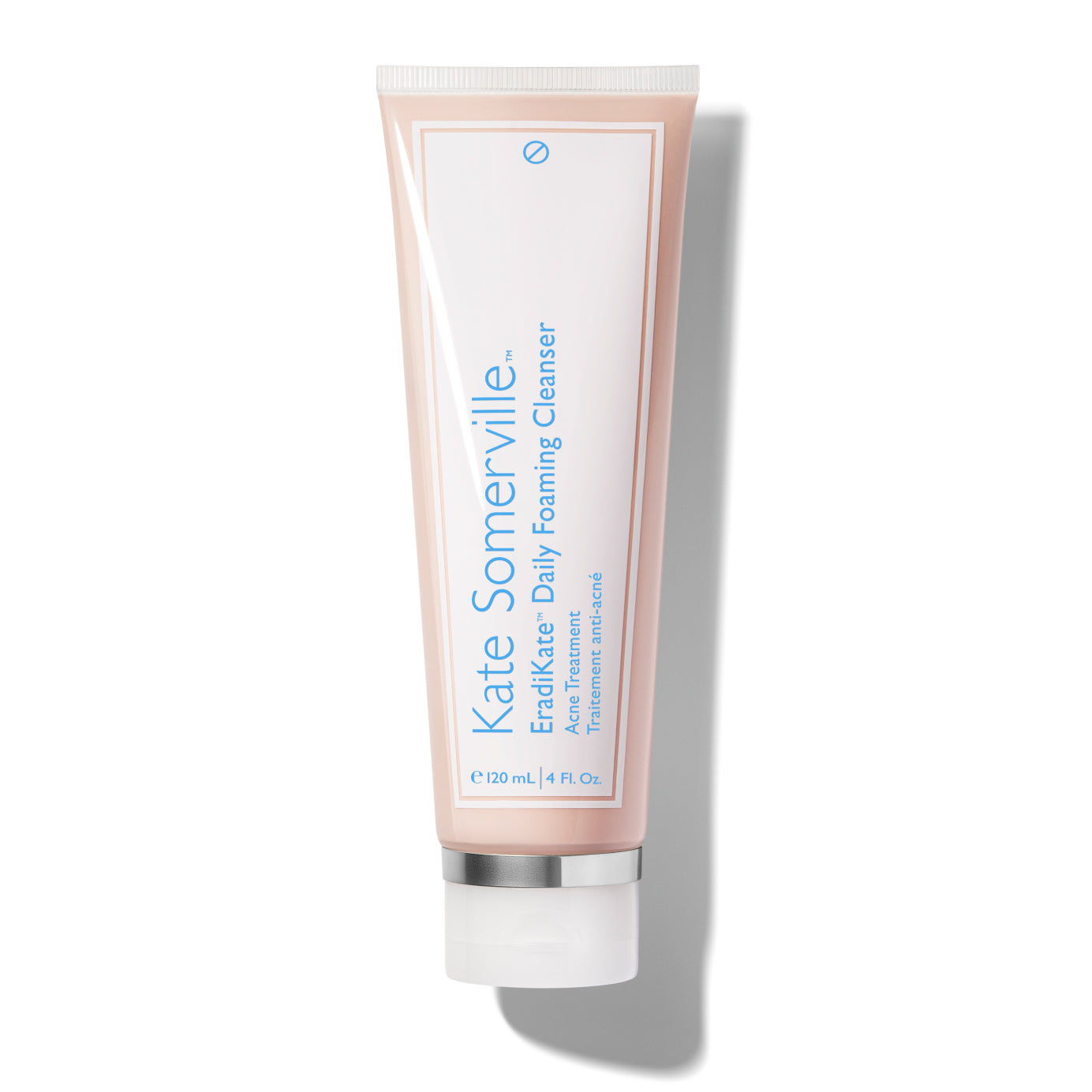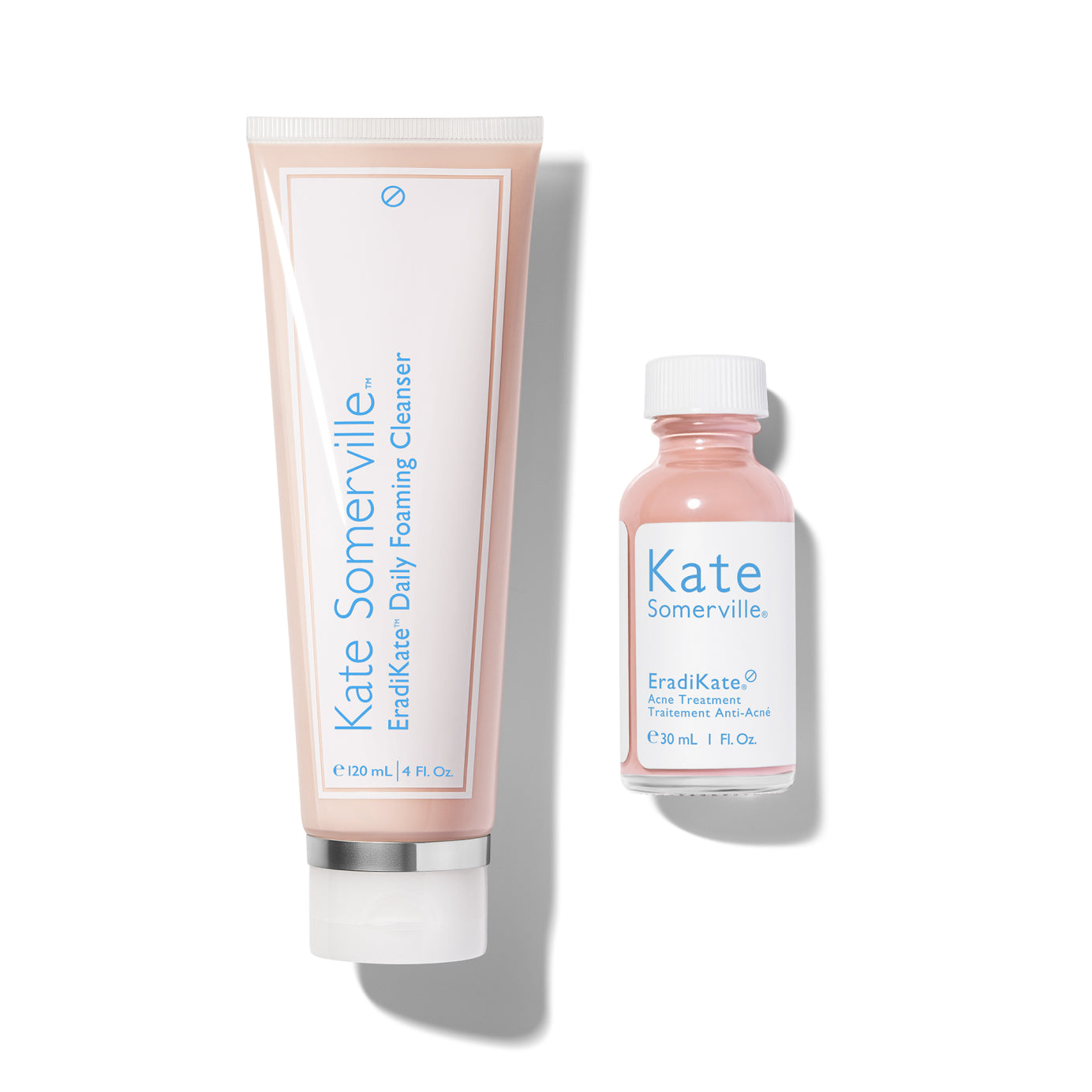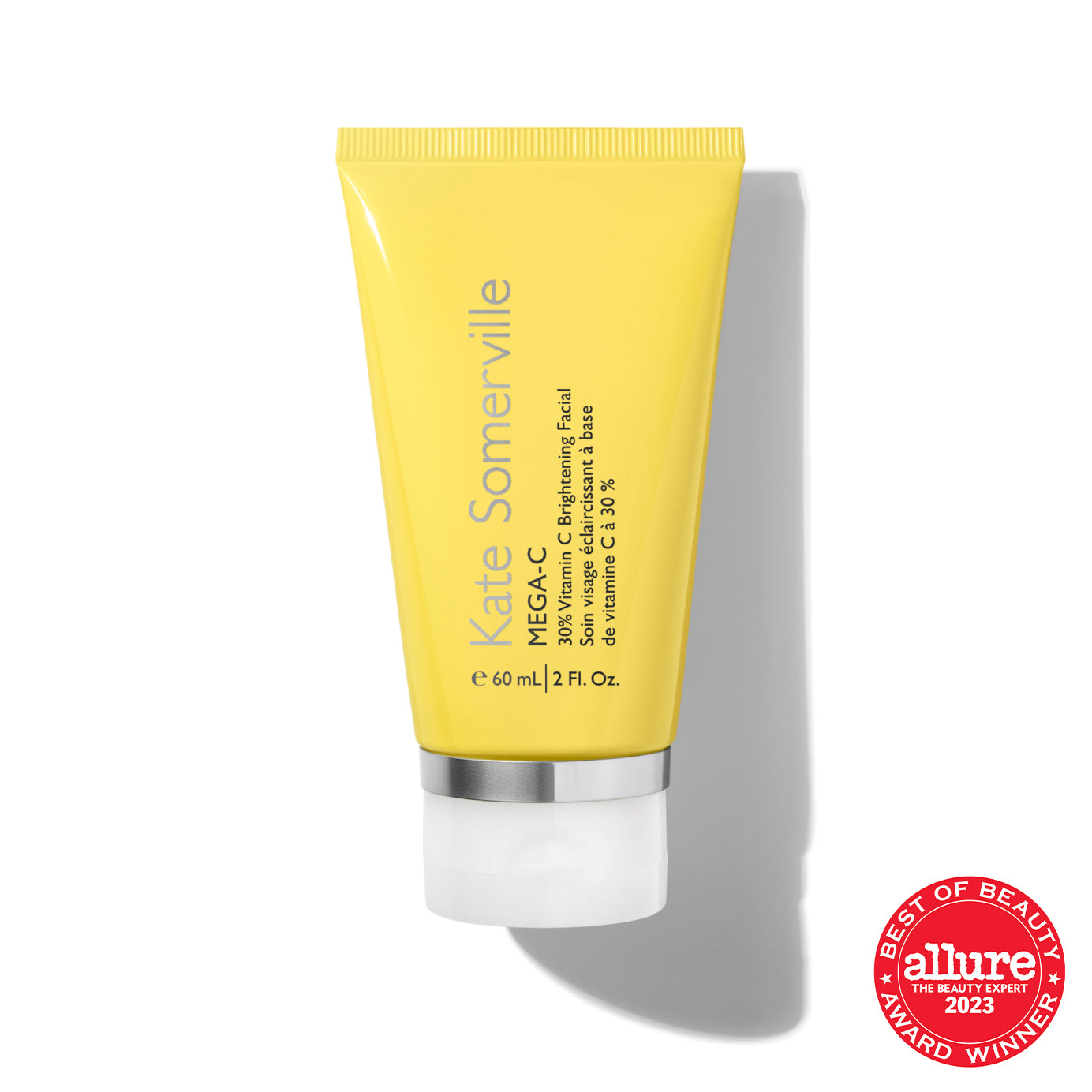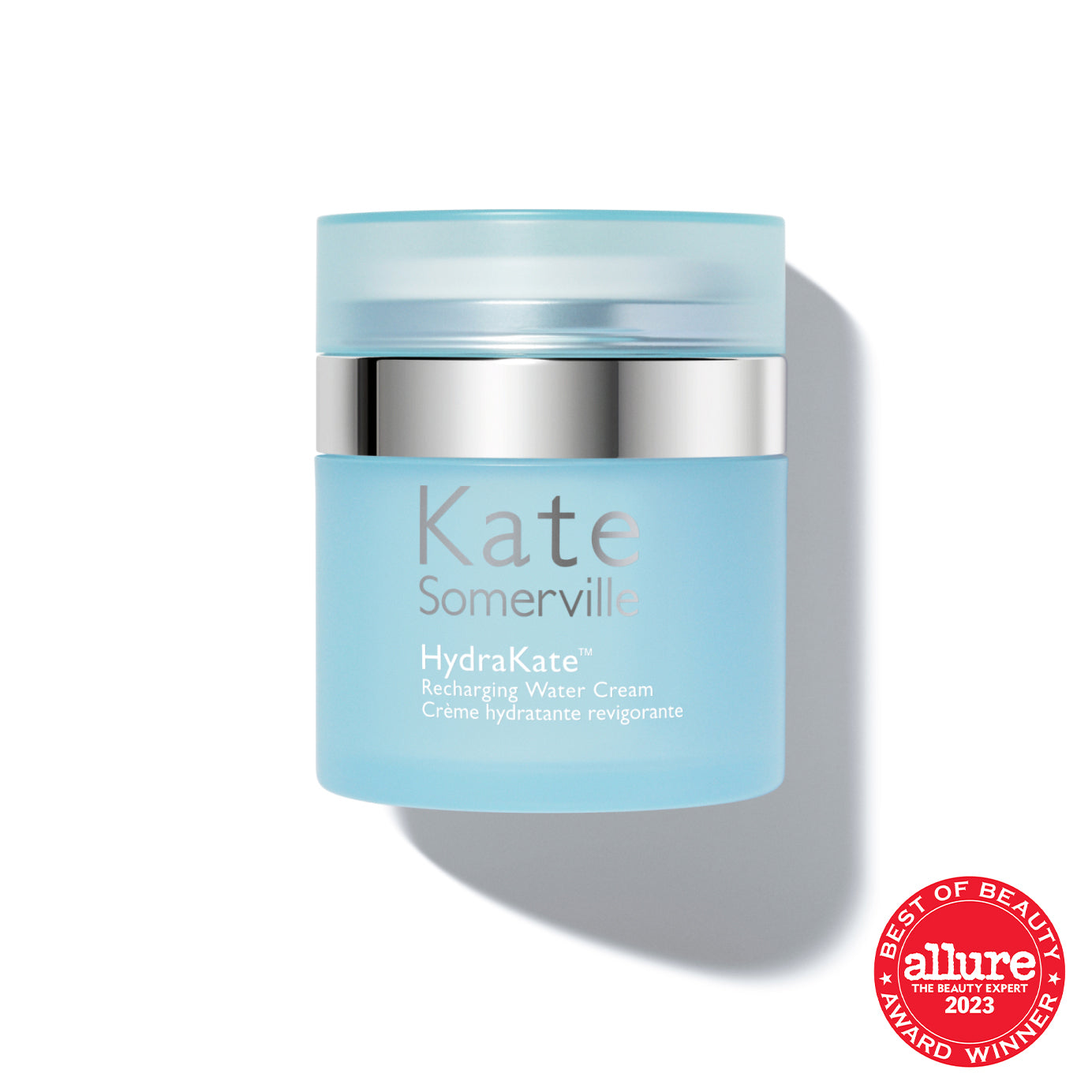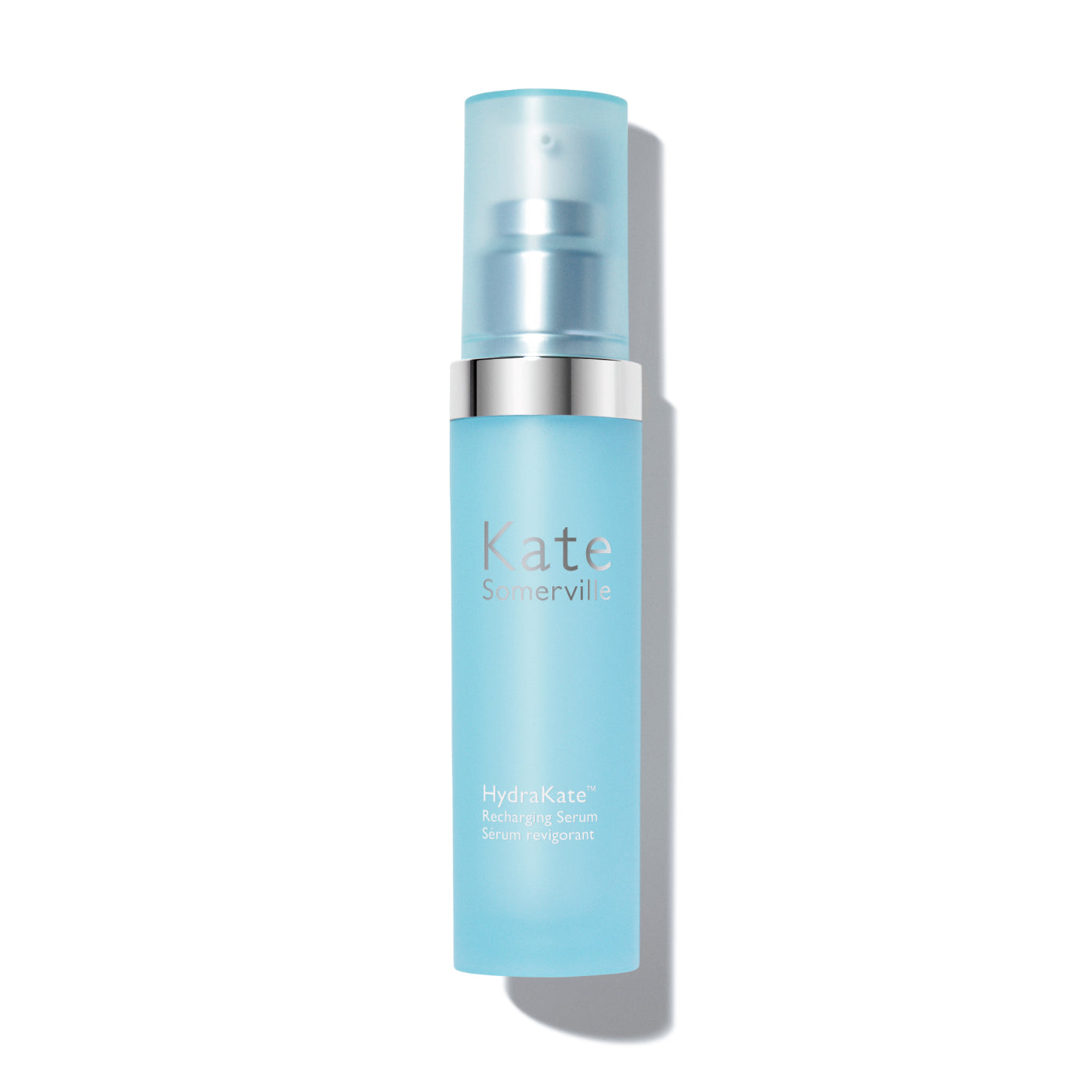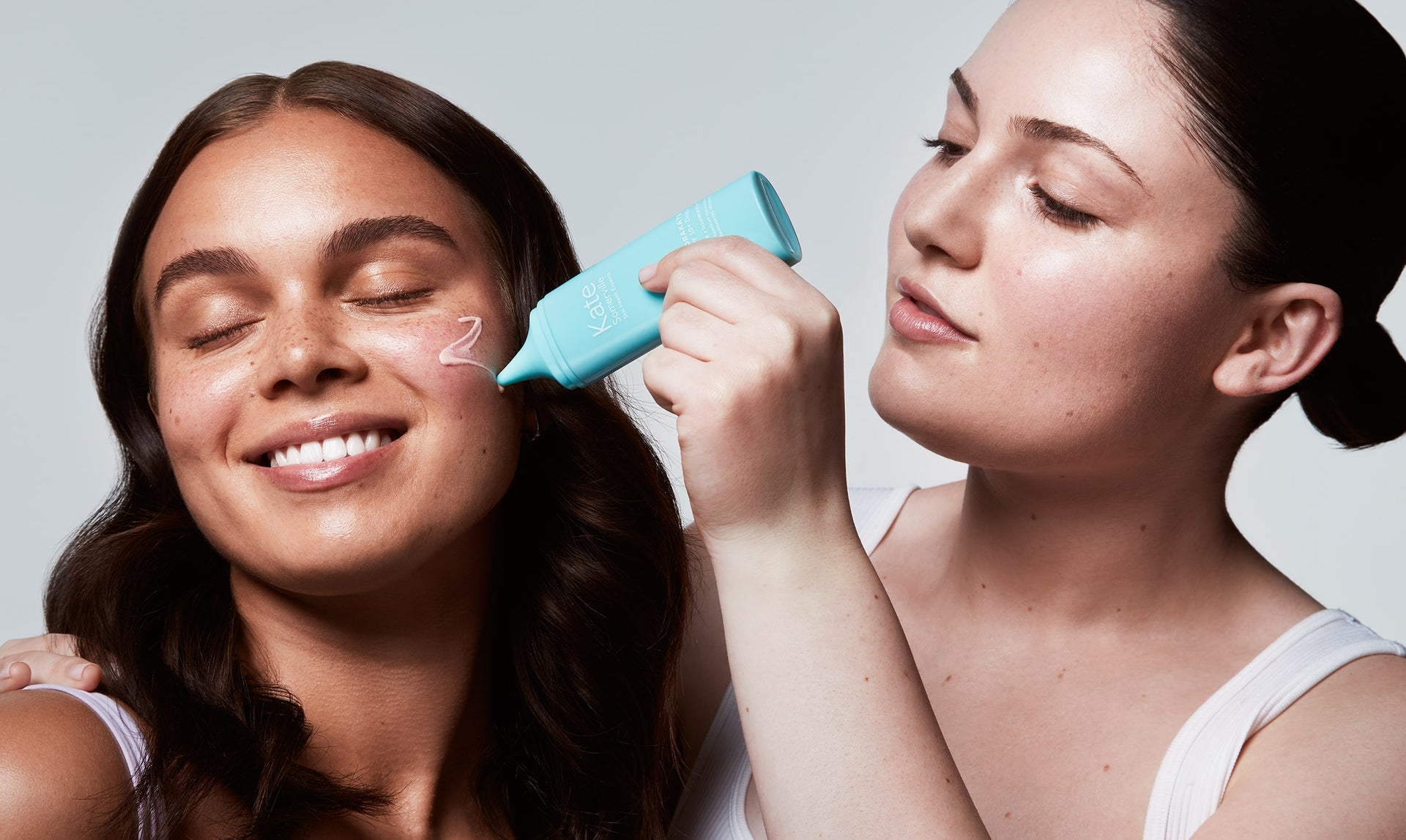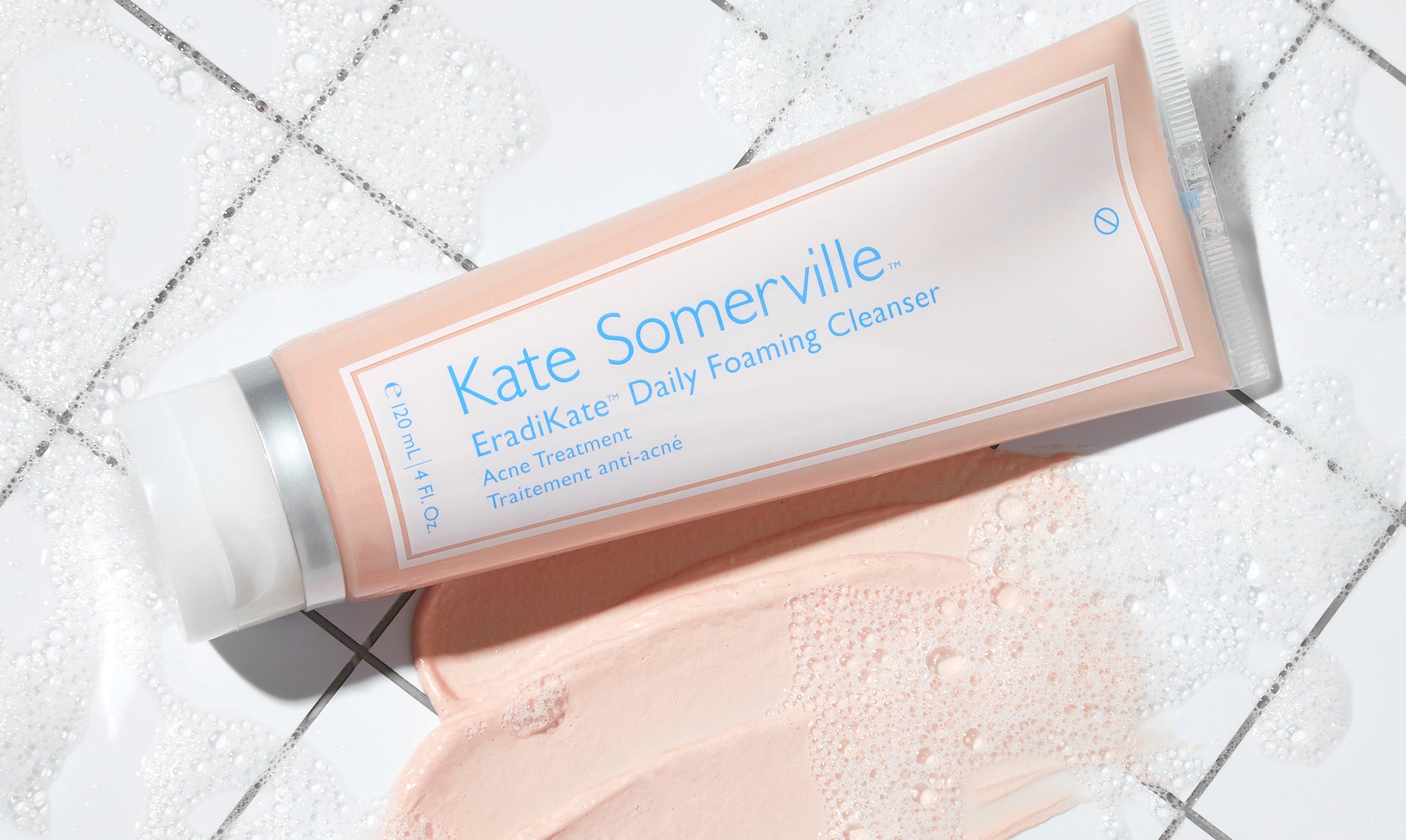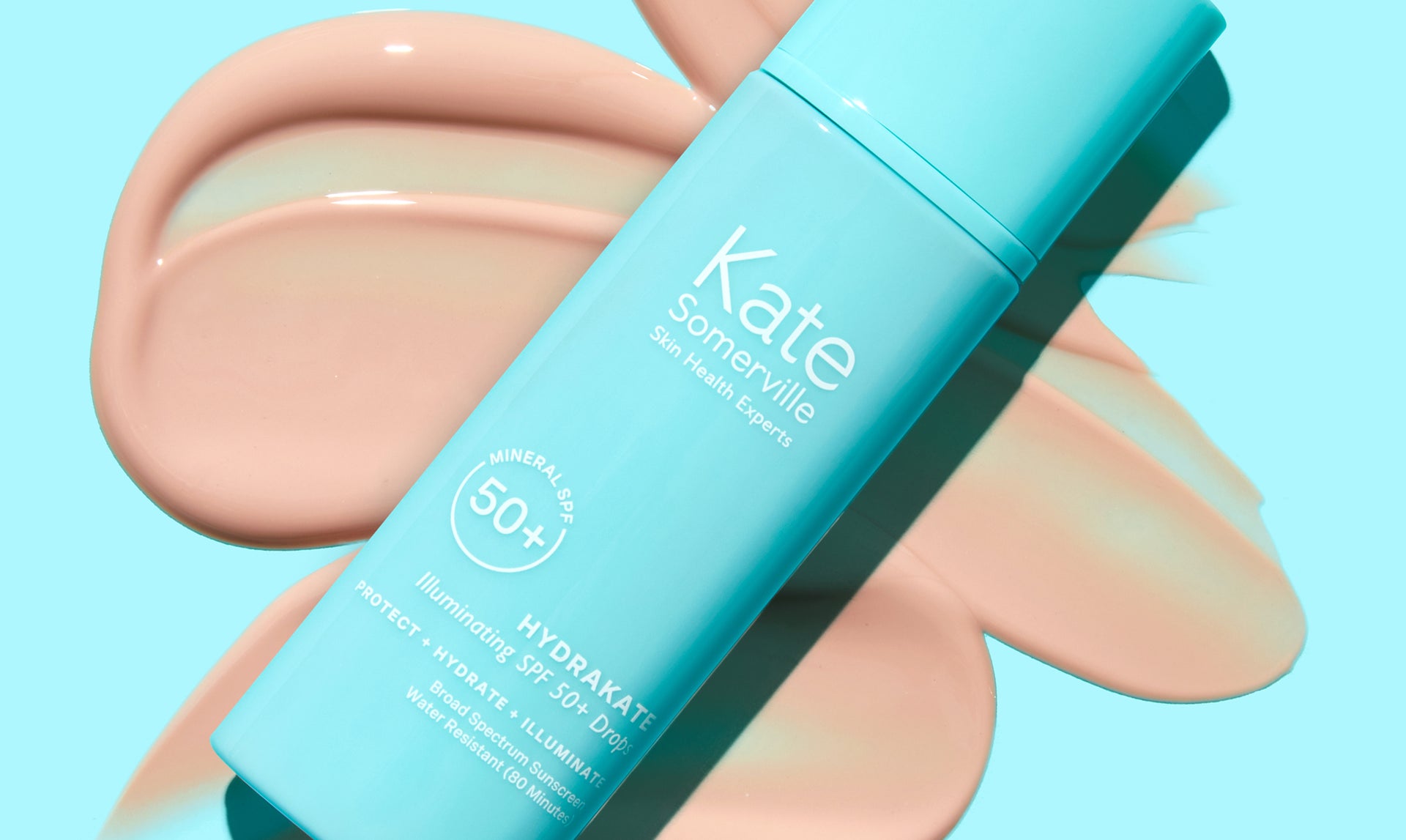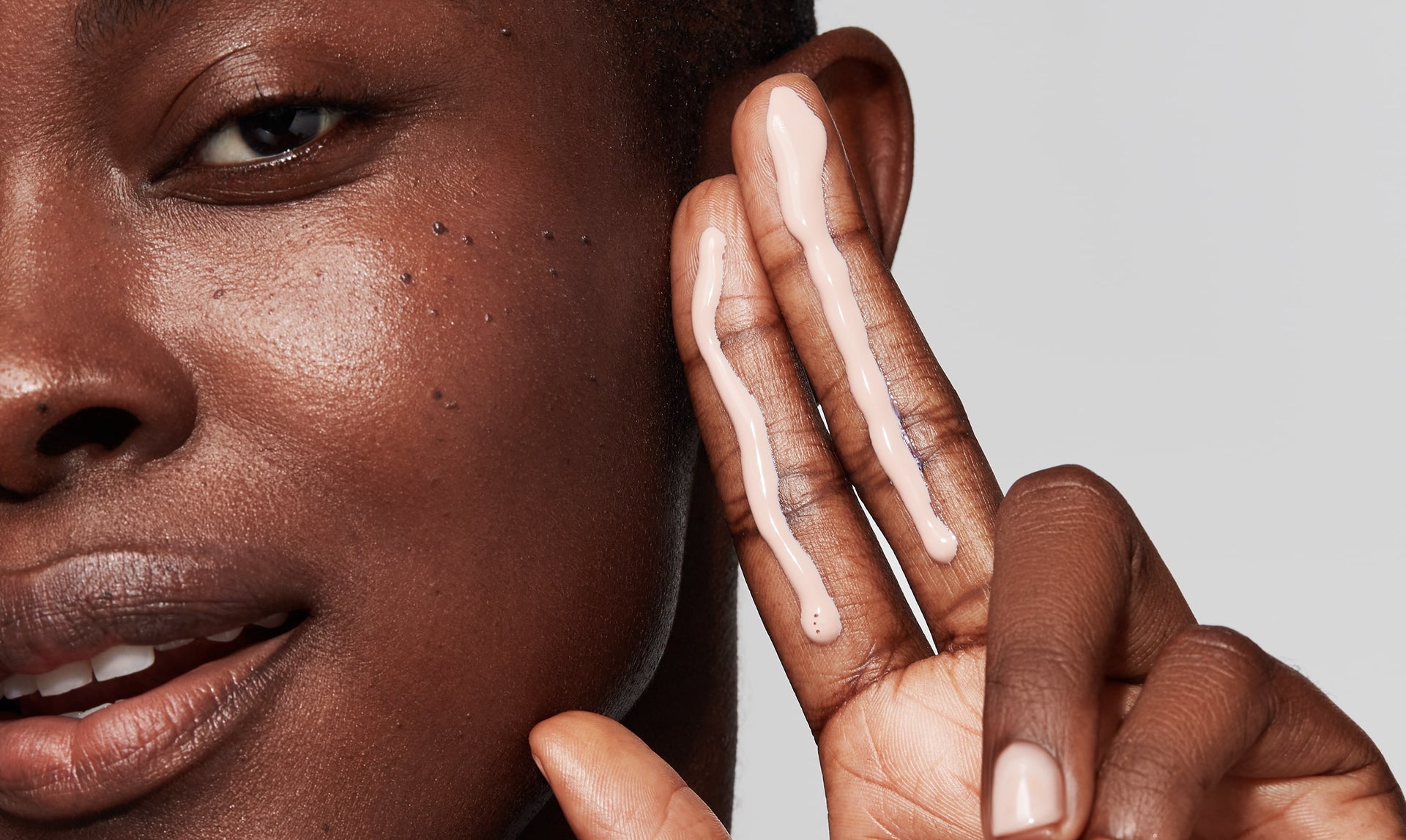Youthful-looking, healthy skin largely depends on its hydration levels. And while there are several products on the market promising to moisturize your skin to perfection, determining which products work can be a bit overwhelming. Though the words "moisturizer" and "hydrator" are often used interchangeably, they do have important key differences. Our Kate Somerville Skin Health Experts explain the differences between a hydration vs moisture below.
What’s the Difference Between a Hydrator and Moisturizer?
Although both products help plump your skin, there are actually some key differences between a hydrator and moisturizer. Simply put, a hydrator helps your skin absorb water in the environment. On the other hand, a moisturizer helps in sealing moisture into your skin.
Proper hydration plays a crucial role in maintaining healthy and youthful-looking skin. While hydrators and moisturizers work to prevent dehydrated skin and dry skin, they achieve these results in very different ways. Skin hydration largely determines the look and feel of skin (rough, dry, oily, etc.); when the skin's natural protective barrier is adequately hydrated, our skin is guarded against external stressors like pollution, bacteria, and mold. In addition, the water content inside the cells allows them to expand, plump, and bounce back into form, which gives skin a smooth, more youthful appearance. When the water content of our skin cells is too low, our skin becomes dry, sunken, or irritated.1
Using a topical hydrator such as glycerin or hyaluronic acid infuses cells with water, improving their moisture content and helping to smooth the appearance of wrinkles. Moisturizers, however, work in a much different way. Instead of drenching your cells with water, they work to seal in the moisture that's already there. This helps improve the skin's protective barrier and restore its natural hydration levels.
What is a Moisturizer?
A moisturizer is made of oil-based ingredients to lock in moisture into your skin. So if you’re battling dry skin, a thick moisturizer with deeply nourishing ingredients is the best remedy. Moisturizing products like our Goat Milk Moisturizing Cream are expertly formulated with natural milk proteins to visibly relax and restore skin.
When To Use A Hydrating Product What is a Hydrator?
A hydrator is a type of skin care product that contains humectants that help absorb the skin absorb more water in the environment. Dry and dehydrated skin will require a little more than your morning moisturizer. To replenish and repair lost levels of hydration, reach for Kate Somerville’s DermalQuench Liquid Lift™ or our Squalane + Hyaluronic Serum. Both deliver instant and lasting hydration to parched skin, helping replenish a dewy glow.
When to Use a Hydrator, Moisturizer, or Both
As Skin Health Experts, we believe that nearly everyone can benefit from having both hydrating and moisturizing products in your skincare routine. Before you click “add to cart” on any new products, it’s important to first identify your skin type so you’ll know which products work best for you. For example, many people assume a moisturizer will fix dry skin issues, but if your skin is dehydrated instead of dry, that won’t solve the problem.
What symptoms determine whether skin is dry or dehydrated? If skin appears flaky, it's possible that your skin's natural protective barrier has been damaged. Re-hydrate and restore the protective layer by introducing a more powerful moisturizer like Peptide K8™ Power Cream or KateCeuticals™ Total Repair Cream. Or, if you see a dull complexion with visible fine lines and wrinkles when you gaze in the mirror, dehydration is more likely the cause.
When dealing with dehydration, you don’t necessarily need a thick cream to resolve this skin issue. Enter hydration, or more specifically, a product expertly formulated with super quenching ingredients like Hyaluronic Acid or Squalane to plump, smooth and restore.
When in doubt, remember this. If your skin is dry, a moisturizer will help to alleviate the symptoms. A hydrator, on the other hand, will function best if your skin is dehydrated.
When to Use a Thick Moisturizer
Battling dry skin? A thick moisturizer with deeply nourishing ingredients is the best remedy. Moisturizing products like our Goat Milk Moisturizing Cream are expertly formulated with natural milk proteins to visibly relax and restore skin.
When To Use A Hydrating Product
Dry and dehydrated skin will require a little more than your morning moisturizer. To replenish and repair lost levels of hydration, reach for Kate Somerville’s DermalQuench Liquid Lift™ or our Squalane + Hyaluronic Serum. Both deliver instant and lasting hydration to parched skin, helping replenish a dewy glow.
The Importance of Hydrating From the Inside Out
Applying hydrators and moisturizers isn't the only way to keep skin hydrated. Skin is the largest organ in the body and is made up of roughly 64% water.2 Therefore, drinking water regularly to hydrate your skin from the inside out is an essential part of any beauty routine. When you treat yourself to a glass of water, your body decides where that water is needed most. Drink enough water, and you'll notice a more plump, radiant glow to your skin fairly quickly. That being said, drinking water may not immediately give you the results you're looking for, which is why you'll need to combine it with quality moisturizing and hydrating skincare products.
Hydrate Oily Skin with Water-Based Hydrators and Moisturizers
For acne-prone and oily skin, a water-based moisturizing product like the Kate Somerville Oil Free Moisturizer will give you needed hydration without greasy residue. Water-based, lightweight, fragrance-free, and fast-absorbing products will properly hydrate your skin without clogging pores or leaving behind a shine.
Know the Difference Between Products that Moisturize or Hydrate
Knowing the difference between products that hydrate and moisturize is the key to creating an effective skincare routine to protect your skin’s barrier. Use this guide to determine if you need to add a hydrator, moisturizer, or both, to your daily skincare regimen. Apply these products twice a day, in the morning and at night. For the best results, use them consistently before determining their effectiveness for hydrated skin.
Sources:
1. https://www.ncbi.nlm.nih.gov/pmc/articles/PMC5849435/
2. https://www.ncbi.nlm.nih.gov/pmc/articles/PMC4529263/
